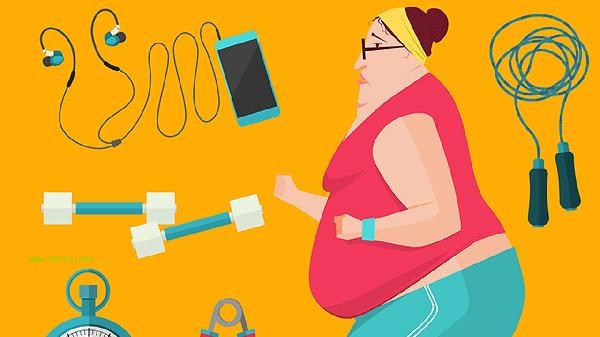constipation during weight loss can be alleviated by adjusting dietary structure, increasing dietary fiber intake, moderate exercise, regular sleep, and using laxatives if necessary. Constipation is usually related to factors such as a sudden decrease in dietary calories, insufficient dietary fiber, slowed intestinal peristalsis, insufficient water intake, and metabolic changes.

1. Adjust dietary structure
Reduce the intake of refined carbohydrates and replace some staple foods with whole grains, such as brown rice, oats, etc. Ensure a daily intake of at least 300 grams of non starchy vegetables, such as broccoli, spinach, and other dark green leafy vegetables. Moderate increase in legumes, mushrooms, and other foods rich in soluble dietary fiber can help soften feces.
2. Increase dietary fiber
The recommended daily dietary fiber intake is 25 grams or more, which can be supplemented with seed foods such as chia seeds and flaxseed. Choose fruits with skin on, such as apples and pears, and avoid juicing and filtering. Pay attention to gradually increasing fiber intake to avoid bloating caused by excessive intake in the short term.
3. Moderate exercise
Maintain moderate intensity exercise for at least 30 minutes every day, such as brisk walking, swimming, etc. It is highly recommended to take a 15 minute walk after meals to promote intestinal peristalsis through the gastrocolic reflex. You can try massaging the abdomen clockwise, starting from the lower right abdomen and pushing along the colon.

4. Establish a regular schedule for defecation, and it is recommended to try defecation within 2 hours after waking up in the morning or after meals. Avoid deliberately suppressing bowel movements and maintain a relaxed posture when using the toilet. Ensure 7 hours of sleep per day, as insufficient sleep can affect the autonomic nervous system's ability to regulate the intestines.
5. Hypolaxatives
can be used in the short term as osmotic laxatives such as lactulose oral solution and polyethylene glycol 4000 powder. Kaisai Lu is suitable for situations where feces are hard and difficult to excrete. Avoid long-term use of irritating laxatives such as senna, as it may cause intestinal functional dependence. Before medication, it is recommended to consult [SEP]. When constipation occurs during weight loss, it is important to drink at least 2000 milliliters of water per day, including warm water or light honey water. To avoid excessive dieting leading to insufficient food residue, it is recommended to consume no less than 1200 calories per day. Long term constipation accompanied by symptoms such as abdominal pain and bloody stools should be promptly diagnosed with organic diseases. Maintain patience, as it usually takes 2-4 weeks for the gut to adapt to a new dietary pattern.










Comments (0)
Leave a Comment
No comments yet
Be the first to share your thoughts!